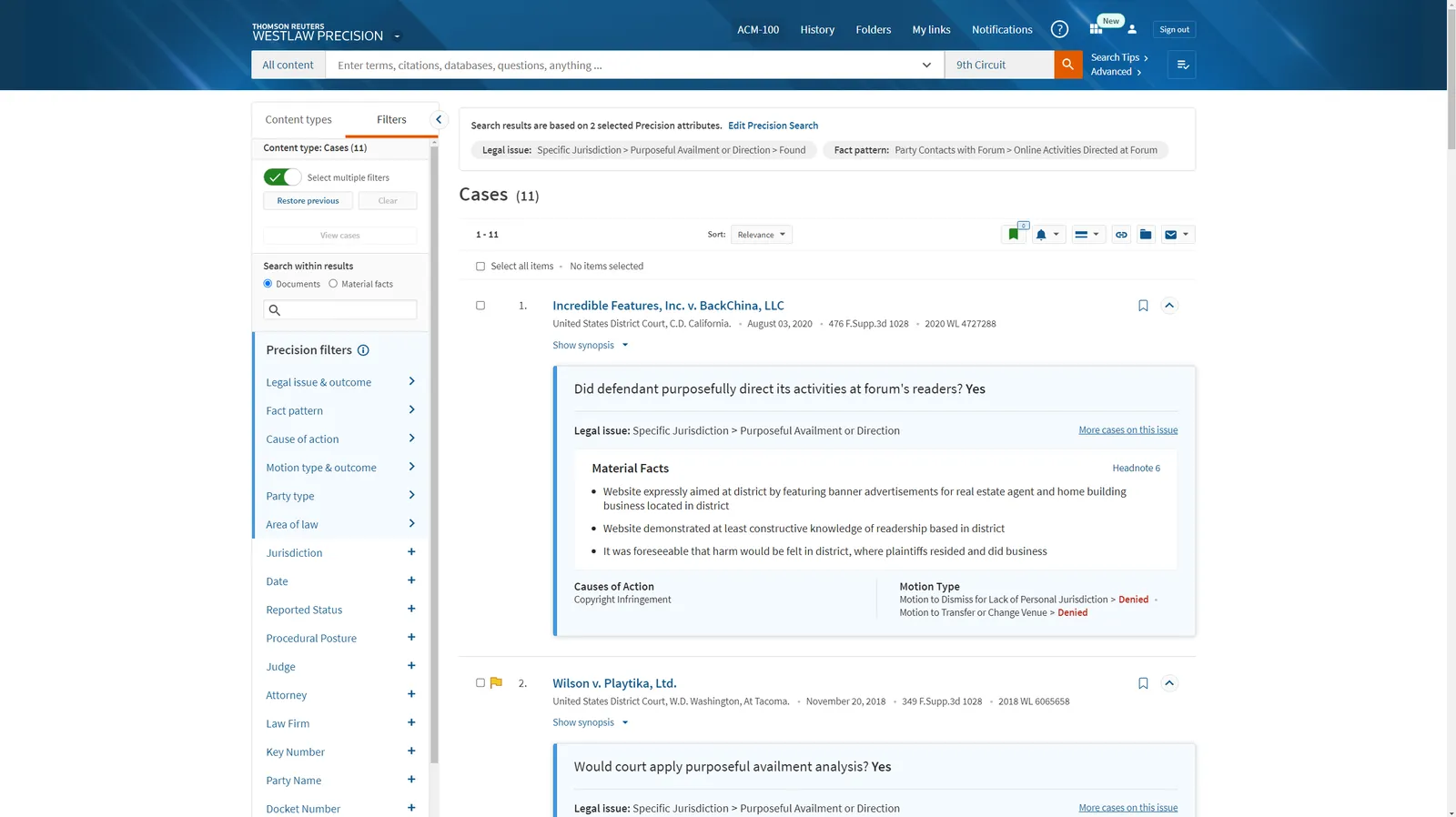Thomas Reuters has released a new version of Westlaw designed to help lawyers more easily and efficiently find key case information they are seeking.
The product called Westlaw Precision features an enhanced search function that better enables attorneys, including those working for in-house legal departments, to track down information directly relevant to their cases.
“For more than 100 years, we have classified legal issues with the West Key Number System,” said Leann Blanchfield, head of primary law, editorial at Thomson Reuters. “Now we are also classifying cases by issue outcome, fact pattern, motion type, motion outcome, cause of action, and party type. This enables customers to specify precisely what they want and retrieve it quickly.”
She gave the example of an attorney conducting research for a breach-of-contract case and searching for other such cases decided at the motion to dismiss stage.
Blanchfield said the search could focus on cases in which a breach claim involved a failure to deliver goods and where dismissal motions were granted because the breach claim was insufficiently alleged.
“What complicates your research process is that ‘failure to deliver goods’ can be stated several ways, such as ‘refused to deliver the magnesium alloy’ or ‘the capacitors never arrived.’ And finding there was no breach of contract could be noted in dozens of ways too,” she said in a prepared statement. “You need a precise level of specificity to get it right.”
“To enable more precision in search, we added more than 250 new attorney editors to mark up and classify case law in more useful ways for our customers,” Blanchfield added.
Greater speed
Mike Dahn, Thomson Reuters’ head of product management for Westlaw, said customers report that difficult legal research can take more than 10 hours per case. Westlaw Precision should “substantially reduce research time,” he said in a press release.
For example, more than 100 practicing attorneys who used the functionality called Precision Research in testing found relevant cases more than twice as fast as those using traditional search methods, according to Thomson Reuters.
Additionally, those who used Precision Research also found nearly twice as many relevant cases as those who researched with traditional methods at the end of their research sessions, the company said.
Corporations, law firms and state courts were part of the beta program for Westlaw Precision.
“Our testing demonstrated the value of Westlaw Precision, but we are just getting started,” Dahn said. “While Westlaw Precision offers significant speed and quality benefits now, we will continue to provide even faster and better research in the future.”












